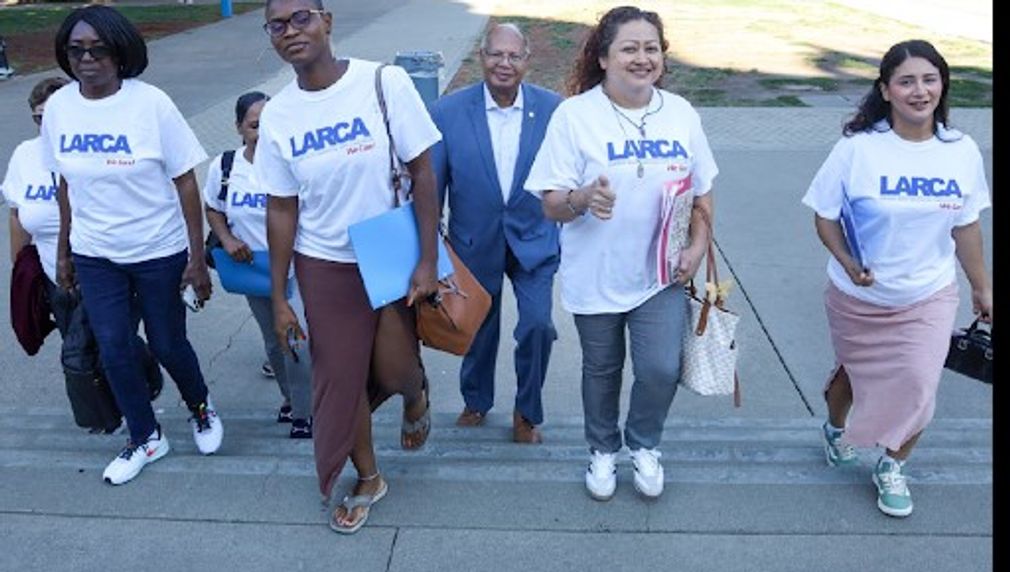LAHSA to LARCA Care Access Program
LAHSA to LARCA Care Access Program will be a partnership between LARCA, a non-profit organization of State-licensed Board and Care owners, Administrators and residents, and LAHSA, that will be a direct care pipeline for homeless people, specifically the BIPOC community, to be directly and immediately placed into permanent housing that provides for whole-person care for people who are living with a serious mental illness, low-income and who may have a co-occurring disorder such as substance abuse in a culturally competent manner.

What is the primary issue area that your application will impact?
Affordable housing and homelessness
In what stage of innovation is this project, program, or initiative?
Pilot or new project, program, or initiative (testing or implementing a new idea)
What is your understanding of the issue that you are seeking to address?
LA County has a disproportionately high number of BIPOC residents who are homeless, living with a serious mental illness and who may also have a substance use disorder. BIPOC people are also shown to have less access to mental health care, affordable housing and treatment for substance abuse. LAHSA, the Los Angeles Homeless Services Authority, is the largest homeless services agency in the County of LA and serves as the primary homeless services agency for the County of Los Angeles as well as the City of Los Angeles. According to the Stanford Institute for Economic Policy Research (SIEPR), In 2020, about 25 percent of all homeless adults in Los Angeles County had severe mental illnesses such as a psychotic disorder and schizophrenia and 27 percent had a long-term substance use disorder. Moreover, a higher percentage of so-called chronically homeless have drug addiction, a severe mental illness, or both.
Describe the project, program, or initiative this grant will support to address the issue.
LAHSA to LARCA Care Access Program will be a partnership between LARCA, a non-profit organization representing owners and Administrators of State-licensed Adult Residential Care Facilities (ARFs) and Residential Care Facilities for the Elderly (RCFEs) and LAHSA, the Los Angeles Homeless Services Authority, that will be a direct pipeline for homeless people, specifically the BIPOC community, to be directly and immediately placed into permanent housing that provides for whole-person care for people who are living with a serious mental illness, low-income and who may have a co-occurring disorder such as substance abuse. The LAHSA to LARCA Care Access Program will be the source for immediate and dignified placement of some of our most vulnerable residents into a permanent, supportive housing environment, where they will receive the much needed whole person care in a culturally competent manner. State licensed Board & Cares will serve a greater role in providing this much needed care by receiving the residents from the LAHSA to LARCA Care Access Program as soon as they have been assessed and determined ready to live in permanent, supportive housing. State licensed Board & Cares represent a critical yet shrinking form of long-term, unlocked, residential housing that meets the needs of people experiencing serious and persistent mental illness. Board & Cares provide assistance with medication management, three meals a day, two snacks, laundry, 24-hour staff, and more.
Describe how Los Angeles County will be different if your work is successful.
When the BIPOC community no longer disproportionately represents the largest number of homeless people, people living with an untreated mental illness and substance use disorder in LA County, the LAHSA to LARCA Care Access Program will be measured as a success. BIPOC community members will have the same opportunity, access and level of service for their mental illness, homelessness and substance use disorders, and the data will show a successful reduction in these disparities among the BIPOC community.
What evidence do you have that this project, program, or initiative is or will be successful, and how will you define and measure success?
The LAHSA to LARCA Care Access Program will work with the appropriate County government agencies to document the Program, monitor the efficacy of the Program and produce a final report at the conclusion of the Program. The Final Report will also be used to compare its results to other programs that are operating within LA County to address and eliminate these disparities.
Approximately how many people will be impacted by this project, program, or initiative?
Direct Impact: 1,000.0
Indirect Impact: 1,000.0